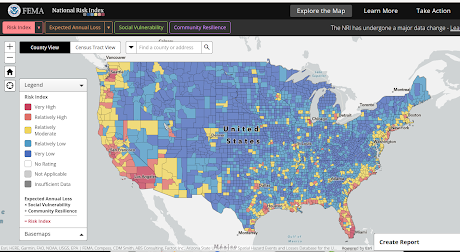
Note: This is the first day of National Preparedness Month. Follow this year’s campaign on Twitter by searching for the #NatlPrep #BeReady or #PrepMonth hashtags.
This month, as part of NPM24, I’ll be rerunning some updated preparedness essays, along with some new ones.
We're not talking about `doomsday prepping', but rather reasonable steps you can take now to make life easier, and safer, for you and your loved ones during a unexpected emergency or crisis.
Although most people believe that they are relatively immune to natural disasters, each year millions of Americans find themselves dealing with hurricanes, tornadoes, floods, fires, blizzards, derechos, power blackouts, or other serious interruption in life or essential services.
While it has been a relatively quiet summer, so far in 2024 the United States has seen 19 `Billion Dollar' weather/climate disaster events (15 severe storm events, 1 tropical cyclone event, 1 wildfire event, and 2 winter storm events).
It is a mixed bag, however. More people have assembled supplies, but fewer people report practicing emergency drills or habits. More have learned their evacuation routes, but fewer have made a plan. And while more have tested a family communication plan, fewer report having signed up for alerts or warnings.
While you can't be prepared for every eventuality, the most common scenarios involve interruptions in services (power, water, internet, banking, etc.); which may last hours, days, or even weeks.
Having basic preps (food, water, first aid kit, emergency radio, etc.) can go a long way towards easing the misery.
These are, of course, minimum goals. I consider 2 weeks a far more prudent goal.
Over the next 30 days I'll be devoting considerable blog time and space to the topic of disaster preparedness. Along the way we'll look at some threats you and your family may not have considered.
I hope you’ll take some time during the coming weeks to think about how to make your family, business, or community better prepared to deal with the next disaster, and then act on it.
And that you’ll encourage others to do the same.





